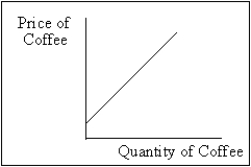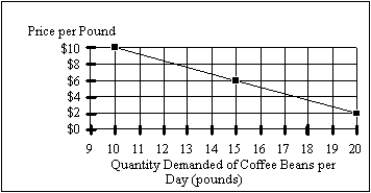Exam 2: Observing and Explaining the Economy
Exam 1: The Central Idea157 Questions
Exam 2: Observing and Explaining the Economy107 Questions
Exam 3: The Supply and Demand Model170 Questions
Exam 4: Subtleties of the Supply and Demand Model: Price Floors, Price Ceilings, and Elasticity182 Questions
Exam 5: Macroeconomics: the Big Picture157 Questions
Exam 6: Measuring the Production, Income, and Spending of Nations180 Questions
Exam 7: The Spending Allocation Model170 Questions
Exam 8: Unemployment and Employment215 Questions
Exam 9: Productivity and Economic Growth165 Questions
Exam 10: Money and Inflation154 Questions
Exam 11: The Nature and Causes of Economic Fluctuations169 Questions
Exam 22: Deriving the Formula for the Keynesian Multiplier and the Forward-Looking Consumption Model28 Questions
Exam 12: The Economic Fluctuations Model206 Questions
Exam 13: Using the Economic Fluctuations Model178 Questions
Exam 14: Fiscal Policy139 Questions
Exam 15: Monetary Policy173 Questions
Exam 16: Capital and Financial Markets174 Questions
Exam 17: Economic Growth and Globalization164 Questions
Exam 18: International Trade250 Questions
Exam 19: International Finance125 Questions
Exam 20: Reading, Understanding, and Creating Graphs35 Questions
Exam 21: the Miracle of Compound Growth11 Questions
Exam 23: Present Discounted Value16 Questions
Exam 24: Deriving the Growth Accounting Formula13 Questions
Select questions type
There is total agreement in economics among economists and policymakers.
Free
(True/False)
5.0/5  (36)
(36)
Correct Answer:
False
Most disagreements between economists occur because of different data sources.
Free
(True/False)
4.9/5  (25)
(25)
Correct Answer:
False
Explain why there is the popular impression that economists seldom agree with each other.
Free
(Essay)
4.8/5  (31)
(31)
Correct Answer:
First, even if 99 percent of the economics profession agrees with an issue, it is always possible for a news show to find an economist who represents the 1 percent that does not.
In addition, economists are human beings with different moral and philosophical beliefs about what should happen in the world, unrelated to economic models. Consequently, even if economists agree on abstract theory, their different moral and philosophical beliefs cause them to disagree with respect to policy.
Explain why it is more difficult to determine causality in economics than in other sciences such as physics, chemistry, and biology.
(Essay)
4.8/5  (39)
(39)
Exhibit 2-3  -In Exhibit 2-3, an example of a variable would be the
-In Exhibit 2-3, an example of a variable would be the
(Multiple Choice)
4.7/5  (23)
(23)
"Inflation is currently 4 percent in the United States." This statement is an example of
(Multiple Choice)
4.8/5  (39)
(39)
If the quantity demanded of coffee increases when the price of coffee declines, then these two ____ are ____.
(Multiple Choice)
4.9/5  (42)
(42)
Whether to have more or less government involvement in the overall economy is essentially a
(Multiple Choice)
4.9/5  (39)
(39)
All of the following are what economists commonly do except
(Multiple Choice)
4.8/5  (43)
(43)
The figure below shows the relationship of the quantity demanded for coffee beans to the price of coffee beans at a local coffee shop.  (A)If the price of coffee increases from $6 per pound to $10 per pound, by how much will the quantity demanded for coffee change?
(B)Explain how your answer in part (A) relies on the ceteris paribus assumption.
(A)If the price of coffee increases from $6 per pound to $10 per pound, by how much will the quantity demanded for coffee change?
(B)Explain how your answer in part (A) relies on the ceteris paribus assumption.
(Essay)
4.9/5  (35)
(35)
Economic models need to resemble, as much as possible, the phenomena being explained.
(True/False)
4.8/5  (28)
(28)
Economics is the only science concerned with politically controversial subjects.
(True/False)
4.8/5  (38)
(38)
To argue that economics is a partisan policy tool means that
(Multiple Choice)
4.9/5  (33)
(33)
It has been documented that beer consumption rises when the unemployment rate rises. To conclude that this correlation means that increased unemployment causes increased beer consumption is to mistake correlation for causality.
(True/False)
4.8/5  (29)
(29)
Showing 1 - 20 of 107
Filters
- Essay(0)
- Multiple Choice(0)
- Short Answer(0)
- True False(0)
- Matching(0)